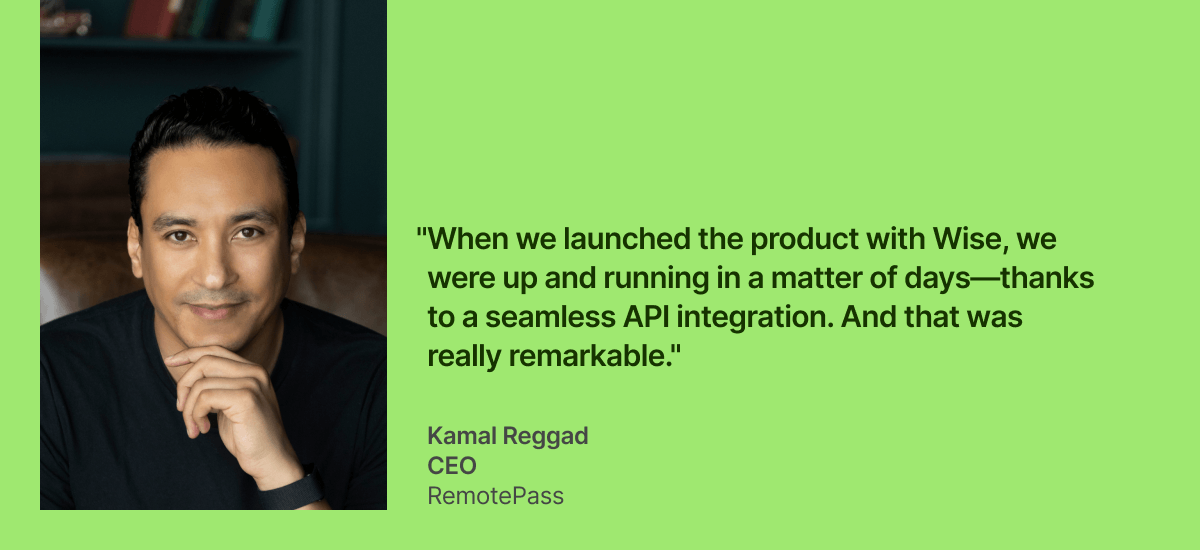5 Ways to Stand Out and Boost Black Friday Sales
Black Friday is the day after Thanksgiving, falling on Friday 29th November in 2024. It’s known for being a perfect time for snagging a bargain, opening the...

Run a UK startup and have ambitions for international expansion? You’ll have a number of plans to make and tasks to work through, but one of the most important will be international market research.
Whether you’re planning to open an overseas hub or enter a product into a new international market, this guide is for you. Below, we’ll run through everything you need to know to develop a market entry strategy for your startup business.
This includes the differences between local and global market research, the initial steps you need to take and methods for rolling out your market research project. We’ll also look at the likely costs involved, so you can plan your budget and allocate the right resources.
So, let’s get started with a look at the fundamentals of market research for startups.
Market research involves collecting and analysing information about a company’s customers and competitors, as well as the broader industry it operates within.
It’s essential for understanding a company or product’s target market. It can be used to test out ideas, determining the viability of business concepts and working out how they can be improved.
For startups, market research helps them to listen to and understand their prospective customers. With these valuable insights, the company can tailor everything from products and services to marketing messaging in order to better appeal to their target customers.
Market research can be used to identify trends within an industry, or to better understand the needs, purchase habits and characteristics of a particular demographic. It can also help to analyse what competitors are doing, and how well.
There are lots of different approaches and methods used in market research. Most techniques can be grouped into two categories:¹
- Quantitative research - this is a scientific method of research, involving gathering and analysing large numerical data sets. It includes things like surveys, polls and questionnaires, and is useful for gaining an accurate picture of market challenges and industry trends.
- Qualitative research - this includes things like in-depth interviews and focus groups to dig deep into the “whys” of customer behaviour. This research can help to pinpoint the reasons driving buying habits, customer satisfaction levels, wants, needs and pain points.
Understanding your customer base and the broader market within your own country is one thing. But expanding into a whole new country presents an entirely different challenge.
While the fundamental principles may be similar, there are significant differences between local and international market research.
When branching out into new territories, you need to get to grips with a different language and culture. Customer expectations and preferences are likely to be unfamiliar. The market and industry may be completely different to what you’re used to, and you’ll have infrastructure challenges to address.
You’ll also need to grapple with the higher level of risk, as overseas markets tend to have more variables to deal with, foreign exchange risk, for example. There are lots of new things to learn, and plenty of things that can go wrong.
These are all reasons why it's absolutely critical to have a solid international market research strategy in place. Put in the groundwork, and you’ll be able to pave the way for the launch of your product or service in a new foreign market.
There are three basic stages of international market research, in relation to launching a product in an overseas market:
One of the many obstacles you’ll face as a startup is a lack of local expertise in the overseas market you’re targeting. This is why it could be a good idea to hire a specialist or work with a third party to help you access the insights you need.
Market research is incredibly important for startup businesses, especially those taking their first steps into unfamiliar international territory.
Without it, you don’t have data. This means no knowledge or insight, which means that you’re essentially just guessing about what will work, what won’t and what your target customers want.
Here are just a few of the many benefits of market research for startups:
Is your business idea actually viable? Will it make money? Will it appeal to your target market? These are all questions that your market research can answer in those crucial early stages.
Before your product goes to market, you can use research to identify any potential issues or areas of improvement. You can then make those crucial adjustments and adaptations tailored to the needs and wants of your target customer base.
A startup backed by data has a stronger chance of survival. This is because decisions are strategic, rather than shots in the dark. You're not investing time, effort and money into guesses or gambles. Instead, you’re using research to steer your company strategically in the right direction.
As we’ve already discussed, market research helps a company identify its specific target market and really get under the skin of its customers. This helps with targeting marketing messages and developing your product or service, so that it has a better chance of success when it launches in a new territory.
Startups often need investment in order to expand. And there’s nothing investors like more than hard data on things like profitability projections of your venture. If you can gather the facts, your company has a better chance of attracting investors quickly, all to help you on your journey.
So, how do you actually get started on researching markets and customers in other countries? Let’s take a look at how to conduct market research, step by step:¹
Make sure you’re ready for international expansion and have all the necessary components, people and resources in place. Key questions to be asking include:
- Why expand to international markets?
- What is the opportunity for the business?
- Is the product or service ready for an international approach? If not, what needs to happen in order to prepare the product, marketing or messaging for launch into an international market?
This step involves collecting and analysing new data from your target market, using methods such as focus groups, surveys and in-depth interviews. You may also want to include some quantitative research on competitors, market trends and the local industry in general.
To supplement your primary research, this step involves gathering and analysing existing information from third parties. You’ll want to look at public databases, news media and crucially, industry reports and whitepapers.
Based on your findings so far, the next step is to create an actionable report. This will form the backbone of your route-to-market strategy, and give you a tangible roadmap full of actionable steps towards launching in a new country.
The cost of market research depends on a wide range of different factors. These include:
- The scale and scope of your research project, including your goals, objectives and timeline
- What type of methodology you’re using
- The audience you’re targeting
- Whether you’re carrying out research in-house or outsourcing to a specialist
- Your industry and the country you’re expanding to.
So, this means that there’s no set minimum or maximum budget for market research. However, some sources estimate that it could cost anywhere from around £12,000 to £20,000 for a custom qualitative or quantitative market research project.² In some cases, your budget could go as high as £40,000+.³
According to other sources, established companies tend to spend around 5-20% of their annual revenue on market research-related activities.⁴ However, as a startup, you may not have this budget available and need to be smarter in prioritising your spend.
As a startup with international aspirations and limited resources, you’ll need to take advantage of useful tools and products to help you along the way.
This is where clever solutions like Wise Business come in. Open an online multi-currency account and you’ll unlock a world of global payment and money services.
With Wise Business, you can securely manage your company’s funds in 40+ currencies, paying overseas staff and suppliers in just a few clicks. Payroll is a breeze, thanks to the Batch Payments tool which lets you pay up to 1000 people at once. You can automate everything using the powerful Wise API, and integrate your accounting tools too.

💡 Read RemotePass' complete case study
As well as saving time, Wise also helps you save money - which is absolutely critical for startups. Whenever you send a payment or convert currency, you’ll only pay low and transparent fees⁵ and always get mid-market exchange rate. It could work out much cheaper than using a bank.
You can also get international business debit cards to manage expenses in 160+ countries.
Multi-currency solutions like Wise Business are breaking down the barriers to international growth, making it easier for smaller businesses to access global markets and customers.
Get started with Wise Business 🚀
And that’s pretty much it - all the essentials you need to know about how to do market research for a startup, with a focus on international expansion.
After reading this, you should have a better idea of what information you need, where to start, and why market research is worth doing in the first place. Good luck!
Sources used for this article:
Sources checked on 2-Nov-2023.
*Please see terms of use and product availability for your region or visit Wise fees and pricing for the most up to date pricing and fee information.
This publication is provided for general information purposes and does not constitute legal, tax or other professional advice from Wise Payments Limited or its subsidiaries and its affiliates, and it is not intended as a substitute for obtaining advice from a financial advisor or any other professional.
We make no representations, warranties or guarantees, whether expressed or implied, that the content in the publication is accurate, complete or up to date.

Black Friday is the day after Thanksgiving, falling on Friday 29th November in 2024. It’s known for being a perfect time for snagging a bargain, opening the...

December kicks off the end of year shopping period, with huge uplifts in on and offline sales as people grab a bargain and get ready for the holiday season....

The term "turnover" is used often in the world of business, but its implications vary significantly depending on the context. At its core, turnover is a...

Wise is a financial technology company focused on global money transfers that offers two different types of accounts: a personal account and a business...

In today's fast-evolving digital landscape, e-commerce is quickly transforming the ways consumers shop and how businesses operate worldwide. DHL’s E-Commerce...

In an increasingly interconnected global economy, small businesses in the United Kingdom (UK) have more opportunities than ever to expand through import and...